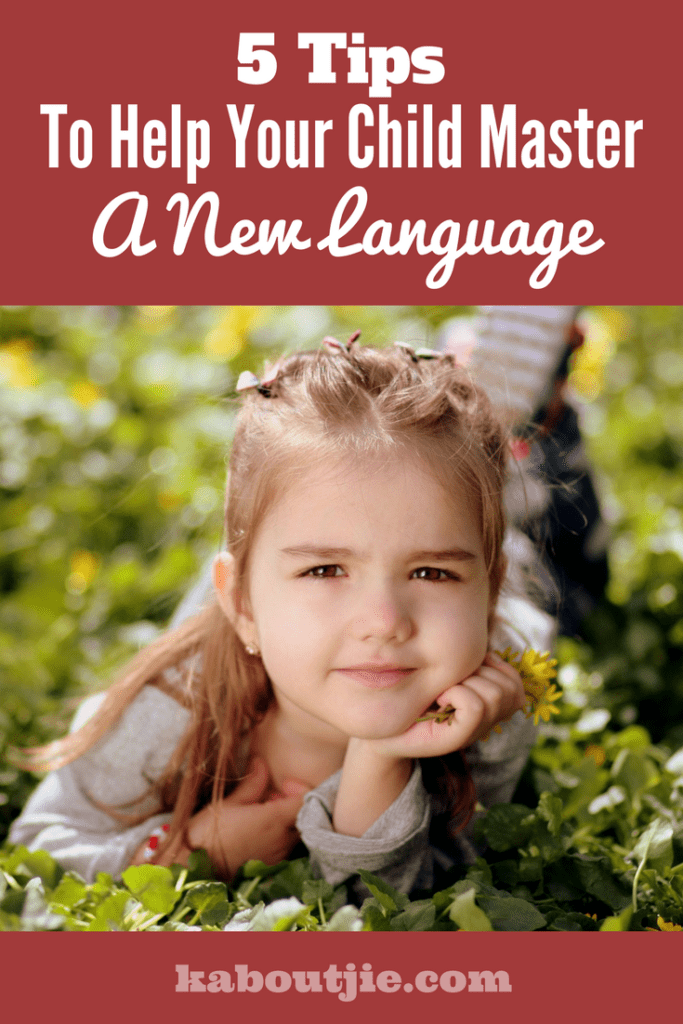Being able to speak more than one language has a number of benefits and if you can teach your child to master a new language will help them later in life as well as offer them some advantages in their younger years too.
Learning a second language will mean more job opportunities for your child later in life, plus it even makes you smarter! Studies had shown that people that speak two or more languages have higher levels of cognitive brain function and are more adept at planning, problem solving and other mentally challenging tasks. The ability to shift between languages is a complete brain workout making them better, in general, at multi-tasking than people that speak only one language.
Studies have also shown that people that speak more than one language are less likely to have early onset of Alzheimer’s Disease and dementia.
Learning a new language doesn’t have to be too hard, especially when it is done at a young age. If you are a bilingual family it will be much easier for you to teach your child a second language and it will be much easier for your child to learn and pick it up if the second language is spoken regularly at home.

Start As Early As Possible
The younger the child is the quicker he will pick up a second language. Children between the ages of two and three years old are rapidly increasing their vocabulary as well as starting to recognize the speech patterns that they have been hearing since their birth. The ability to hear the different phonetic pronunciation is strongest before the age of three.
After the age of three your child will lose start to lose the ability to hear and produce certain sounds with the same ease.
Expose Your Child To The Language
Get hold of some television shows, audio books and music in the language you would like your child to learn and play them regularly. This will create a fun and interesting way for your child to be exposed to the language without any pressure of learning.
Try to choose a language that is spoken in your area so that your child will be exposed to the language more. If you have a friend or neighbor that speaks that language ask them to speak to your child in their native language. You may even be able to find a playgroup that speaks that language for you and your child to attend.
Toddlers love to mimic people and will very soon be picking up words and phrases. Their language skills will quickly become evident.

Play Word Games
Young children love naming things, especially body parts and animals so start playing games with your toddler and teaching him the names for different things. Go one word at a time until he has mastered that word and then add a new one. When your toddler wants to know what something is give him the word in both languages so he can learn them both at the same time.
Point out pictures in books and go through the name of each thing in both languages.
Get A Tutor
If you and your family don’t speak the language you would like your child to learn you can consider getting a language tutor. You may want your child to learn to speak French and you don’t know where to start. A language tutor can spend time talking to your child and helping your child get used to the phonetics and the rhythm of the language as well as pick up on the vocabulary.
Your child (or anyone) can have English lessons or any other language from anywhere in the world. As long as the person is a native speaker of that language your child should pick up the language easily enough.
Bilingual Household
If you are a bilingual household chances are your child’s first language will be the same as his mother’s. There is a reason why your first language is called your Mother Tongue after all.
Try with each parent or member of the family speaking only their own native language to the child. In this way your child will get the full picture and not just bits and pieces of the language.
Expect some mix ups where your child will use both languages in one sentence or use the incorrect word order. This is completely natural and over time your child will learn to separate the languages on his own.
Many people say that learning two languages from the outset causes speech delays however this is not really the case. Your child may know fewer words in one language than his peers but when you add all the words he knows he probably knows more. Very soon your child will know both languages fluently.
 Kaboutjie SA Mommy Blogs by Lynne Huysamen
Kaboutjie SA Mommy Blogs by Lynne Huysamen





Great article.
Wow, I knew that children learn a new language easier than a grown person but I didn’t know that the best time to learn a new language is from the tender age of two. That is fascinating.
JD is starting to learn more and more words. I try to repeat a lot of the same words until he get’s used to them and then try another.
I find it easier to show him pictures or objects for him to learn the words easier. It’s better to see and then associate the word with that object.
For instance: the word cat.
I have this favorite mug that I drink my morning coffee out of. There is a bunch of cats on it. After Mommy and Daddy this was the next word that he learned and remember. Even though the cat was a cartoon picture, he still recognizes a real cat as the same object that is on the mug.
He is good with names also. He will learn a name very quickly when it’s a name of a person or toy that he likes.
I have mixed emotions about bilingual households. One of my friends grew up in a bilingual household. She was better at English but worse in Afrikaans. And her spelling was not the best.
I on the other hand grew up in an Afrikaans household but are not struggling with English. Speaking can be tricky sometimes because I can’t always find the word I’m looking for but with writing and reading I find it much easier to correspond at work in English, especially when writing letters or replying to e-mails.
I guess it differs from person to person and maybe my keen interest and love for reading books from a young age had something to do with this.